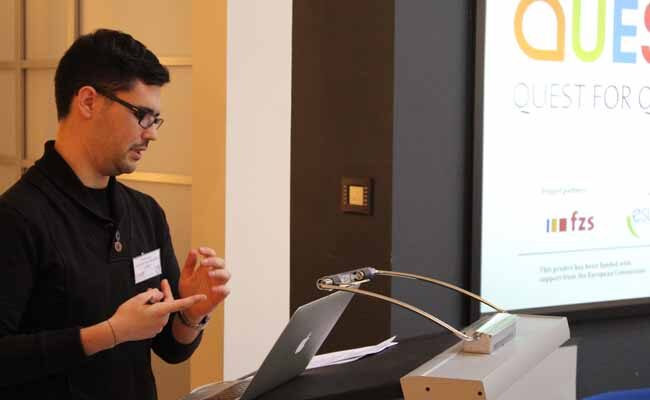
Europe must act to safeguard high quality education
BRUSSELS – The European Students’ Union (ESU) welcomes a new report by the European Commission, highlighting how meaningful quality assurance systems can drive real change in higher education. However, ESU believes it is key to move away from process-orientation to establish a genuine ‘quality culture’ at higher education institutions and strengthen students’ engagement.
Students’ role in quality assurance is acknowledged in the report, for example in developing study programmes and curriculums. Only half of higher education institutions are believed to include students in such revisions although it would have a positive effect on completion rates. The same applies to the quality of student support services that only forty per cent of higher education institutions monitor.
Student-centred learning can also be strengthened through quality assurance so that learning outcomes can be incorporated into teaching, learning and assessment. Quality assurance can also support recognition mechanisms, transparency and the development of good practice in higher education.
Quality in students’ eyes
A recent research project run by ESU called Quest for Quality for Students, or QUEST for short, found that students see quality as a multi-dimensional concept. Quality assurance activities should not be limited to the teaching and learning process, but also take note of surrounding factors. Students’ needs require that institutional evaluations and programme accreditations are applied jointly, which also builds a mutual trust in the European Higher Education Area. ESU, thus, does not support the European Commission’s recommendation to shift exclusively to institutional evaluations.
“Although we believe that this report contains a positive message on quality assurance and what it can do in terms of the overall quality of higher education, accessibility, student-centred learning and recognition of prior learning, students could have been given a more powerful role in this development as the key beneficiaries. In the conclusions, there is no mentioning of students’ participation although other stakeholders are there. We would like to emphasise that a ‘quality culture’ in higher education can only be developed when students are involved at every level,” says Fernando Miguel Galán Palomares, Vice-Chairperson of ESU.
The report also suggest that quality assurance should be used to monitor the link between the labour market and the higher education system, for it to represent the needs of the labour market and to prepare students for employment. This vision contradicts the expectations that students have towards higher education, which was analysed in the QUEST project.
“Quality assurance should not just answer to the needs of the labour market but to the students themselves and the society at large. Students are mainly motivated by their interest in a certain subject and personal growth when they decide to seek higher education, not solely by employment opportunities. Over ninety per cent of students agree that a good study programme gives them additional knowledge and competences as well as broaden their horizon,” says Galán Palomares.
The report identifies two main challenges for quality assurance: cross-border higher education and new ways of education delivery, such as Massive Online Open Courses (MOOCs). ESU is confident that the European Quality Assurance Register (EQAR) is necessary to build trust and foster cross-border cooperation, while avoiding low quality programmes and accreditation mills. Higher education institutions should also assess MOOCs in light of the intended learning outcomes, as all other study programmes, and within the framework of their missions.
Quality as a priority
The quality of higher education is also one of the priority areas for the Greek Presidency of the European Council. ESU hopes that the voices of students will be taken on board in that work.
“We have adopted a policy paper on the quality of higher education, agreed by 47 national unions of students in Europe. The principle and values necessary to build quality in higher education are trust, participation and ownership among the academic community, including students. The quality of higher education can only be improved by an active student participation,” says Galán Palomares.
— END —
For more information, please contact:
Fernando Miguel Galán Palomares, ESU Vice-Chairperson: +32/473.669.892 // fernando@esu-online.org or Robert Hlynur Baldursson, ESU Communications Manager: +32/473.669.894 // robert@esu-online.org

The European Students’ Union, headquartered in Brussels, is the umbrella organisation of 47 national unions of students from 39 European countries. ESU represents and promotes the educational, social, economical and cultural interests of students at the European level. Through its member unions, ESU represents over 11 million students in Europe. To find out more about ESU, follow us on Twitter @ESUtwt, check out or Facebook page or visit www.esu-online.org. ESU celebrates its 30th anniversary in 2012.
